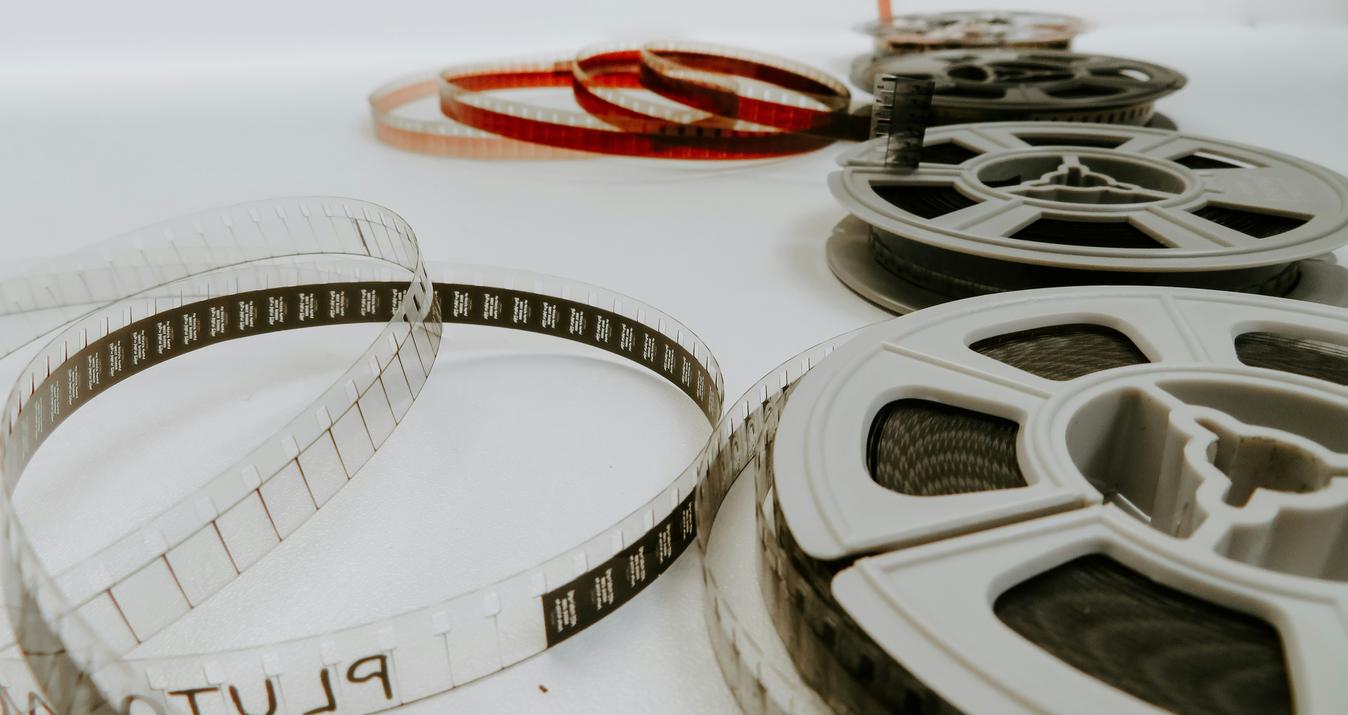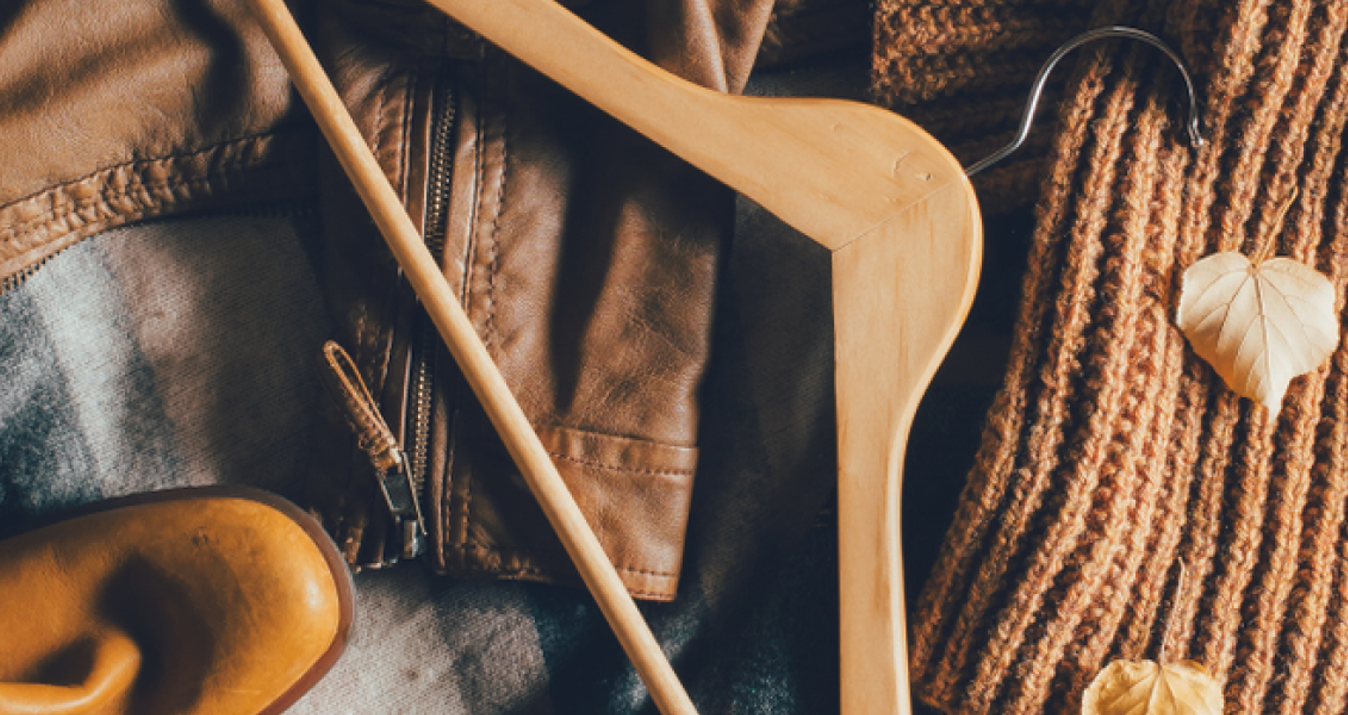How to Master the Art of Rain Photography
December 23, 2024
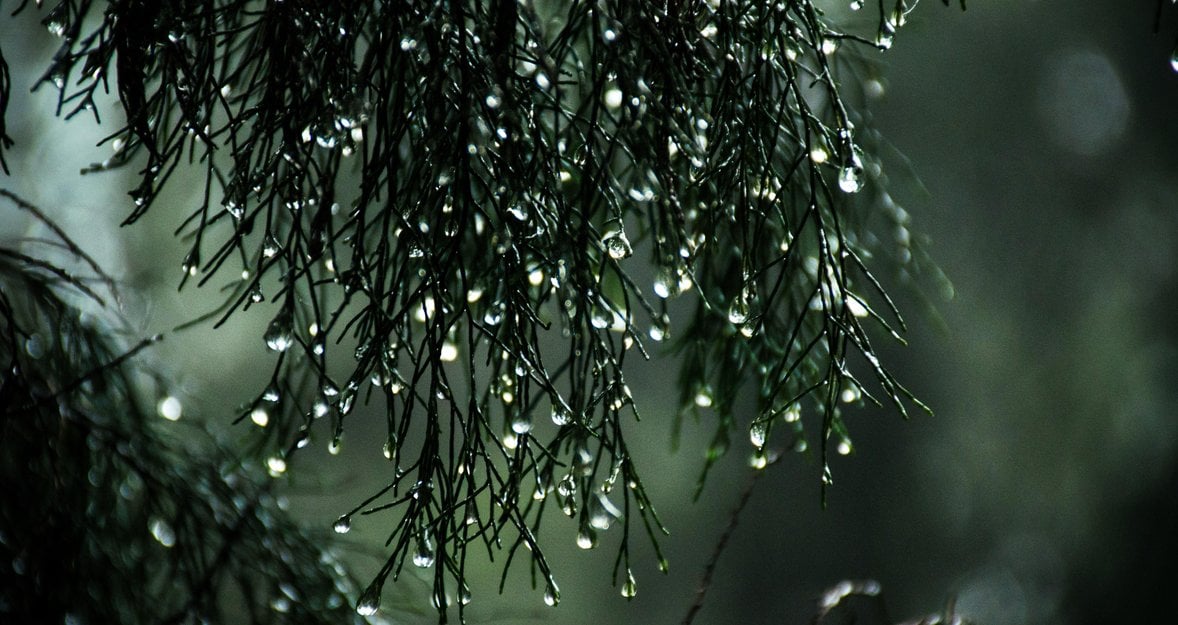
Rain photography is artful and dramatic. Learn the key features of rain photography and transform beautiful rain into your favorite subject.
Rain photography is a challenging yet rewarding genre that adds a touch of mystery and drama to your images. While many photographers prefer to wait for sunny weather, capturing the beauty of rain and wet subjects requires special techniques, gear, and settings.
This comprehensive guide will explore how to shoot in the rain, achieve the perfect rainy weather aesthetic, and unleash your creativity in capturing stunning rain photography. As a bonus, we'll also talk about Luminar Neo, an AI-powered software that can help you add the right mood to your shots with selective color photography. This editing technique allows you to adjust individual tones and is an important tool for subtle color correction.
So, let's get started!
Choosing the Right Gear
When venturing out for a rain photoshoot, it is crucial to have the appropriate gear that ensures your safety, protects your equipment, and enhances your comfort. Here are the essential items to consider:
- A Camera for Low-Light Conditions: Invest in a professional DSLR or mirrorless camera with exceptional performance in low-light environments. Smartphone cameras may not suffice for rain photography, as you need a wide dynamic range and the ability to shoot at high ISO values. A camera with these capabilities allows you to capture aesthetic rain pictures suitable for various platforms like Instagram, magazines, or exhibitions.
- Camera and Personal Rain Protection: Protecting your camera in the rain is essential. Consider purchasing a waterproof camera case, lens hoods, and custom rain covers to safeguard your equipment from water damage. Additionally, carry a raincoat or an umbrella to protect yourself and maintain your comfort during the shoot.
- Tripod: Some rain scenes benefit from long exposures to create a more dramatic effect. To avoid blurry images and camera shake, especially in low-light conditions, a tripod is a must-have accessory. Whether you're capturing a night rain photoshoot or any scene that requires extended exposure, a tripod ensures sharp and well-defined rain photography.
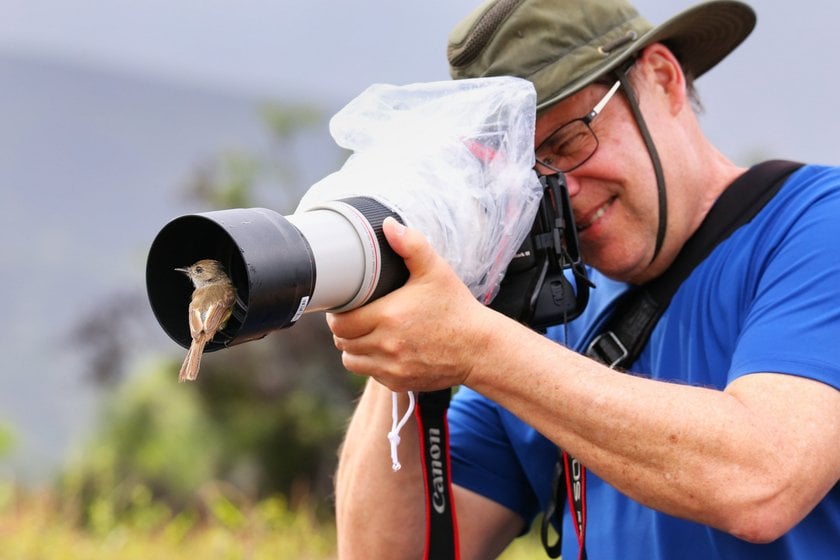
Camera Settings for Getting Beautiful Pictures of Rain
This kind of photography requires specific camera settings to bring out the beauty of raindrops and create the desired effect. While these settings may vary depending on the type of photography you pursue and your preferred style, here are some key settings to consider:
- Medium to High ISO: Rainy weather often results in poor lighting conditions. To overcome this challenge, adjust your ISO setting to a medium to high value. Higher ISO values help maintain a fast shutter speed, allowing you to capture the motion of raindrops effectively.
- Fast Shutter Speed: When photographing rain, a fast shutter speed is crucial to freeze the motion of raindrops and capture their details. Adjust your shutter speed to ensure realistic and well-defined images. For scenes focusing on splashing water, a faster shutter speed is necessary, while slower speeds can be used for capturing the flow of waterfalls or other nature rain photography subjects.
- Large Aperture: Controlling light penetration and depth of field is essential in rain photography. A large aperture allows more light into the camera, enabling you to maintain a fast shutter speed. Experiment with different aperture settings to achieve the desired balance between the speed of the raindrops and the depth of field in your images. Starting with f/8 is a good baseline, but feel free to adjust as per your artistic vision.
- Utilize a Light Source Behind the Rain: Adding a light source behind the rain can create a captivating atmosphere in your photos. Look for natural or artificial light sources such as bright windows, billboards, or traffic lights. These light sources can give the rain a beautiful glow and add depth to your compositions. When shooting at night, use any available light source or carry your own reflector to illuminate the raindrops effectively.
- Flash in Manual Mode: The use of flash can illuminate the raindrops and help maintain a high shutter speed. However, using flash in automatic mode may result in harsh lighting. Instead, opt for manual mode and adjust the flash intensity to your desired level. This allows for greater control over the lighting and helps you achieve the desired rain photography effect. Utilize the flash when capturing urban life, portraits, or commercial photography in the rain.
- Manual Focus: Manual focus is crucial in rain photography to ensure that the main subject, such as raindrops or puddles, remains in sharp focus. Letting the camera choose the focal point may result in focusing on insignificant parts of the scene. By using manual focus, you have full control over the exposure and can highlight the brighter or darker elements in your composition.
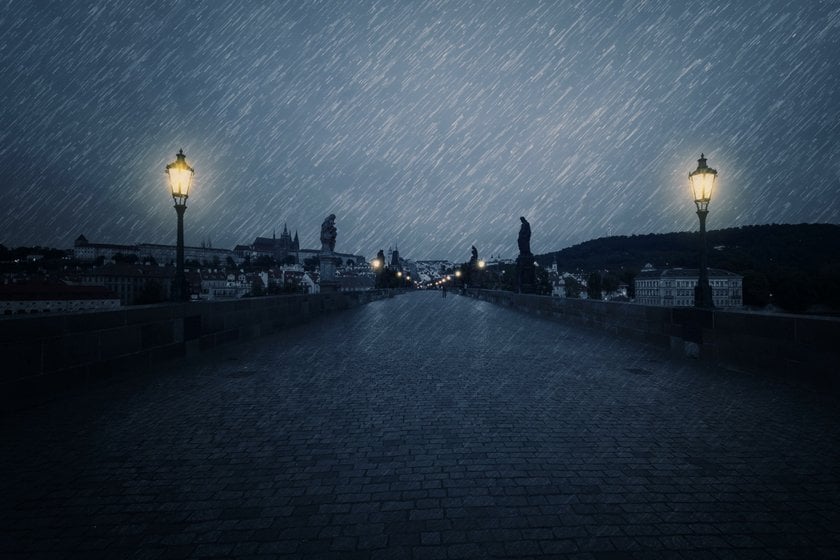
Artistic Compositions for Rain Photography
Rainy day pictures require thoughtful and artistic compositions to convey the desired mood and message. While the weather itself serves as inspiration, it's essential to choose the right tools and techniques to bring your vision to life. Here are some creative compositions to explore:
- Reflections: Rainy streets offer excellent opportunities for capturing reflections. Look for reflections in rain puddles or other surfaces to add an interesting and captivating element to your rain photography. Symmetry and unique angles can enhance the visual impact and create a strong composition. Use manual mode to control the exposure and focus when photographing reflections.
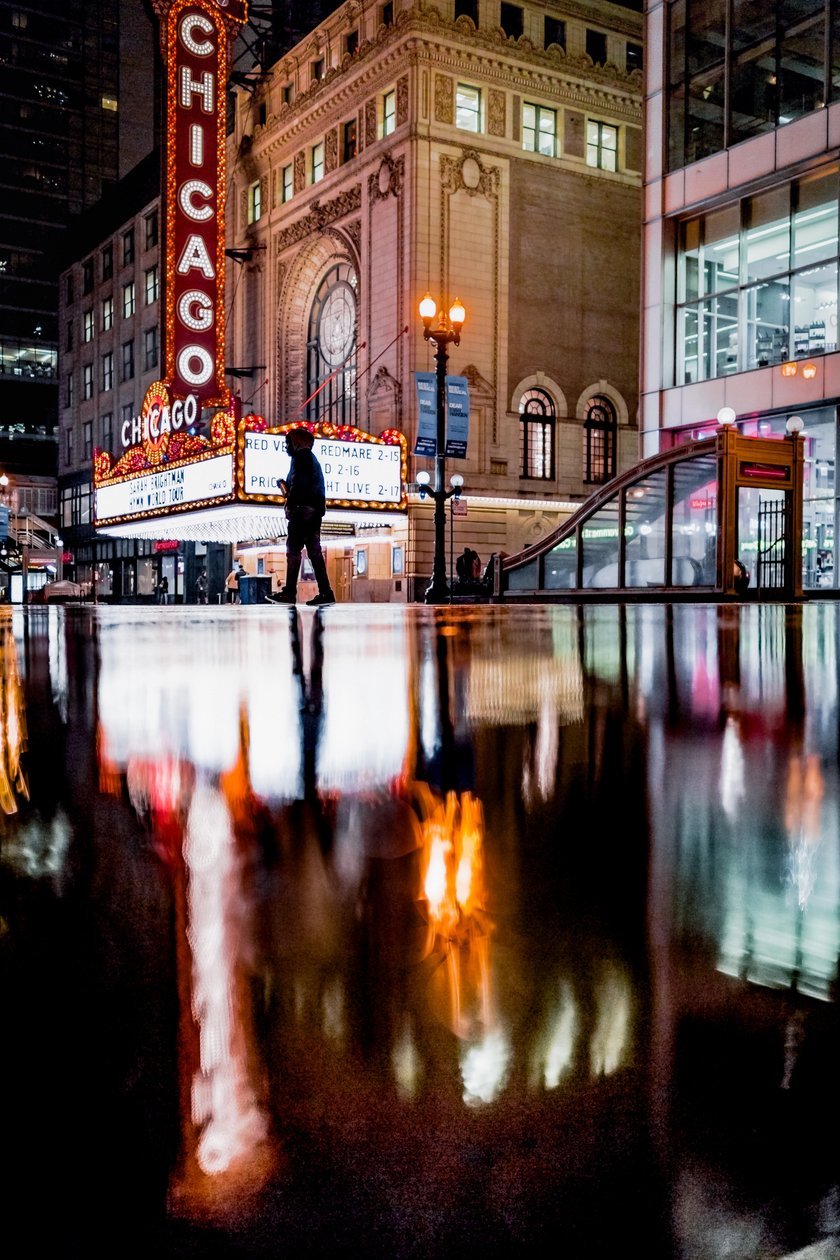
- Water Drops: Water droplets, whether falling or captured on various surfaces, provide visually intriguing elements for rain photography. While macro photography is often associated with controlled environments, rain offers a natural setting for capturing intricate details of water drops. Use a fast shutter speed and a tripod to freeze the motion and emphasize the beauty of water droplets in your images.
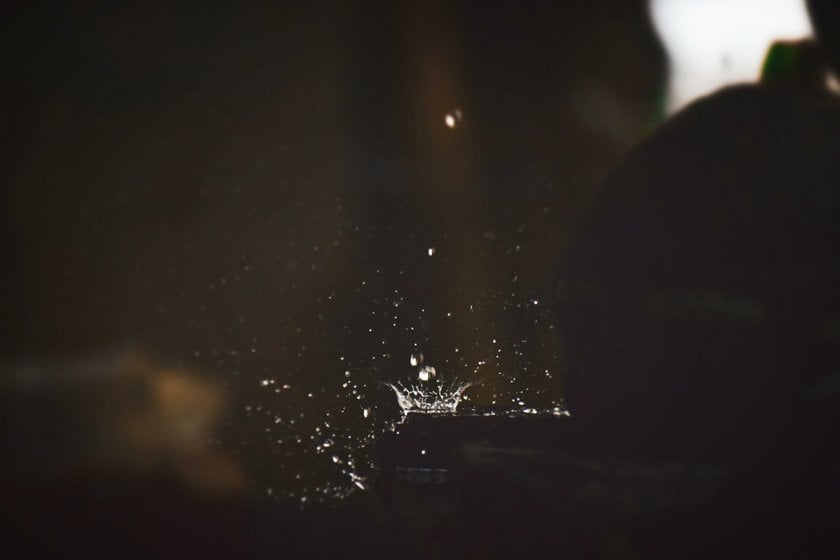
- Water Splashes: Spontaneous water splashes can add dynamism and energy to your rain images. Keep your camera ready when rain is forecasted or plan your shoot around water-splashing elements such as cars passing through puddles or people playing in the rain. These candid moments can result in unique and lively compositions.
- Frame Within a Frame: Creating a frame within a frame adds depth and layers to your rainy compositions. Look for natural frames, such as the edge of an umbrella, a tree branch, or a wet pane of glass, to add an extra dimension to your images. This technique helps guide the viewer's attention to the focal point and enhances the overall visual impact.
Beautiful Rain Moods
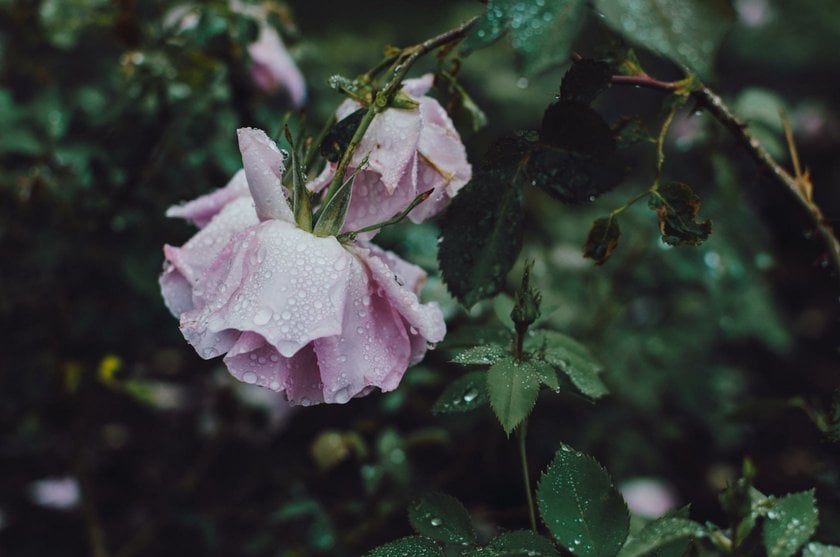
Rain photography offers an array of moods and atmospheres to explore. By understanding the various techniques and effects, you can create evocative images that transport viewers to different emotional landscapes via photography in the rain. Consider these approaches:
- Tonal Contrast: Utilize a consistent range of colors throughout the frame to enhance the desired mood. Tonal contrast focuses on using gradients and neutral colors to evoke emotions such as sadness or happiness. This technique can add a unique touch to your rainy images and create a compelling visual narrative.
- Muted Colors: Incorporate muted and unsaturated colors to create a soft and ethereal atmosphere. Muted colors are ideal for emphasizing themes of love, mindfulness, and serenity. They can evoke a sense of calmness and tranquility, complementing the rainy environment.
- Low-Key Photography: Сharacterized by dark midtones and shadows, it adds a dramatic and sometimes ominous mood to your rain images. By adjusting your exposure settings and using manual mode, you can achieve a well-balanced composition that highlights the bright areas while creating captivating dark tones. This technique works exceptionally well for rain photography with a touch of mystery or suspense.
- Black and White Photography: Transforming your rain images into black and white can add a timeless and classic aesthetic. By removing colors from the equation, black and white photography emphasizes shapes, geometry, and contrast. Rainy urban scenes and rain portraits, in particular, can be elevated by the power of black and white, allowing the viewer to focus on the essential elements and evoke a wide range of emotions.
- Macro Photography: It provides a close-up perspective that reveals intricate details in rain-related subjects. Capture the unique beauty of water droplets, leaves, flowers, or other elements that undergo transformation in the rain. The rain adds an additional layer of complexity, making even the most common objects appear captivating. Set up your equipment on a tripod, find a suitable spot, and don't forget to protect yourself and your camera with waterproof raincoats.
Creative Ideas for Shooting in the Rain
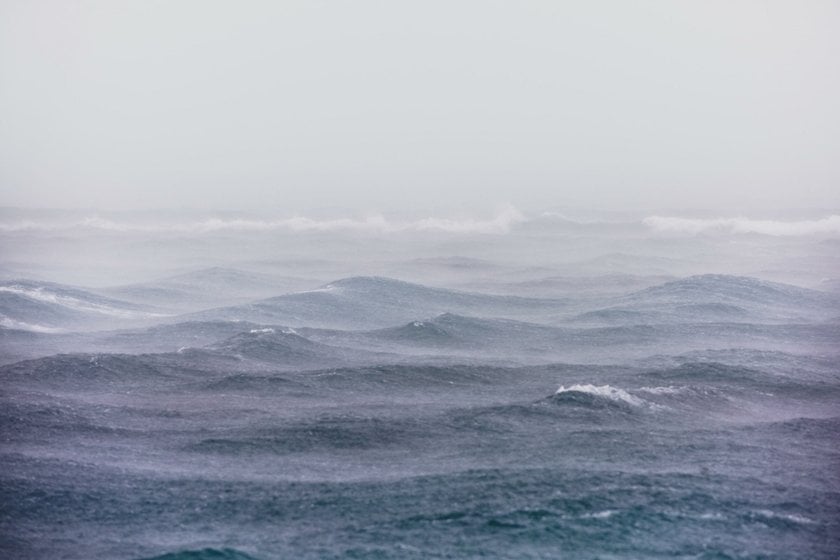
As a photographer, it's natural to seek new ideas and inspiration to fuel your creativity. Here are five creative ideas to help you overcome any creative blocks and explore the magic of rain photography:
Catch the Rainbow
After rain showers, keep an eye out for the appearance of rainbows. Position yourself to capture this natural phenomenon and make use of a polarizing filter to enhance the rainbow's colors and vibrancy. A rainbow adds a touch of enchantment and beauty to your rainy images, making them truly extraordinary.
Pay Attention to the Umbrella
Umbrellas serve as captivating props in rain photography, offering shape, texture, and color to your compositions. Explore different angles and perspectives to incorporate umbrellas into your scenes creatively. They can help you hide less desirable elements in your frame and tell unique stories, such as a couple finding shelter under an umbrella, adding a romantic and intimate touch to your rainy images.
Watch the Rain Through a Window
Rain photography doesn't necessarily require venturing outdoors. You can capture interesting rainy-day photographs from the comfort of your indoor space by observing cityscapes or landscapes through windows. By focusing on raindrops on the windowpane, you can create abstract and intriguing compositions that present the city from a unique perspective. Embrace the blurred colors of roofs, traffic lights, and architecture, letting the raindrops become the main subject of your photographs.
Focus on Raindrops in Puddles
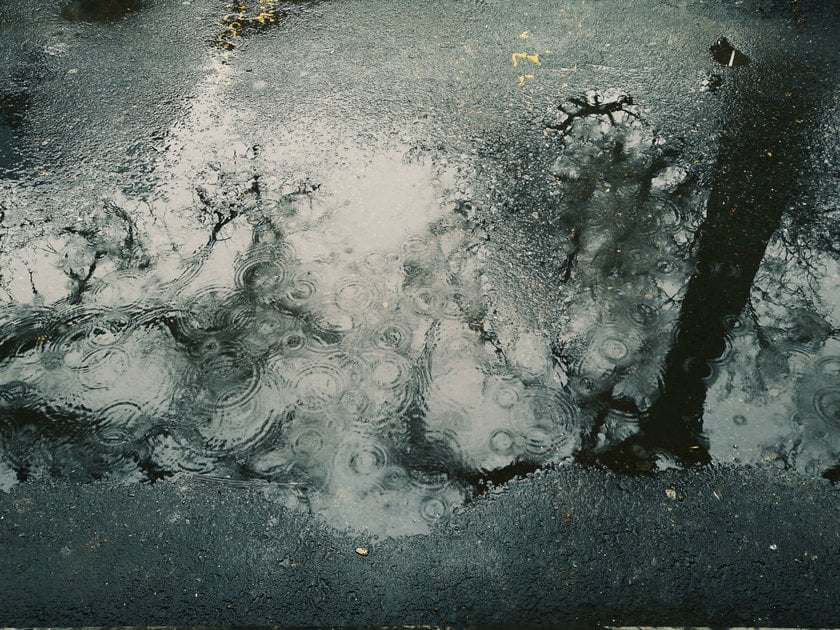
For a dramatic effect, train your lens on raindrops falling into puddles. By adjusting your shutter speed and using a tripod, you can capture the mesmerizing ripples and reflections created by raindrops hitting the water surface. Experiment with longer exposures to achieve captivating raindrop images that convey movement and emotion.
Capture the Mood of Stormy Weather
Stormy weather often presents a unique opportunity for capturing intense and moody rain photography. When dark clouds hint at an impending storm, embrace the atmospheric elements to tell a captivating story. Find a safe location, set up your camera on a tripod, and apply these settings for a cloudy day: adjust your aperture between f/8 and f/14, and use longer exposure times of around 5 to 10 seconds to capture lightning strikes. This technique allows you to freeze the dramatic moments of a storm and create awe-inspiring rain images.
Conclusion: Rain Photography Inspiration
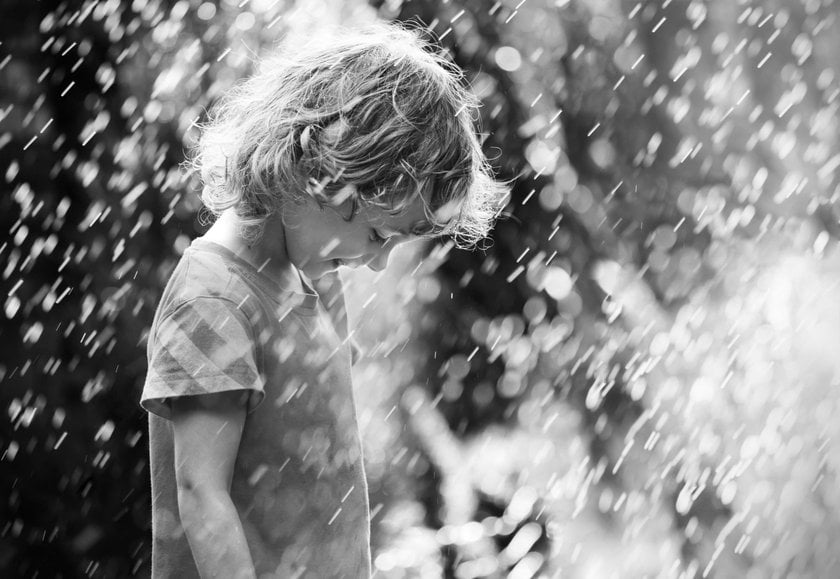
Rain photography pushes you beyond your comfort zone, requiring technical knowledge, adaptability, and creative engagement. By mastering the techniques and artistic approaches discussed in this guide, you can capture mesmerizing rain images that captivate both the audience and critics alike. Remember to experiment with different compositions, effects, and post-processing techniques to add a touch of poetry to your rain photography.
To further enhance the mood and aesthetics of your rainy images, consider utilizing photo editing software such as Luminar Neo. With its powerful tools and extraordinary presets, Luminar Neo can elevate your rain photography to new heights. Whether you need to correct exposure and white balance or apply creative adjustments, Luminar Neo offers a seamless editing experience designed by photographers who understand your needs. Download Luminar Neo now and witness the transformative potential it brings to your rain photography.
Advanced yet easy-to-use photo editor
Get Luminar Neo NowRain photography is an art form that requires technical expertise, patience, and a keen eye for capturing the unique beauty that rainy weather offers. By following the tips and techniques outlined in this guide, you can confidently embark on your journey to create stunning rain photographs. Remember to embrace the artistic possibilities that rain presents, and let your creativity soar.


